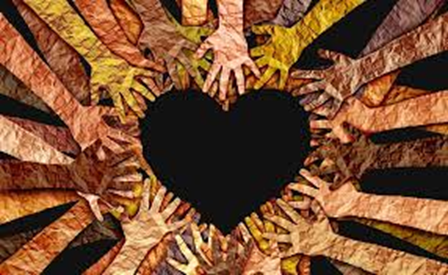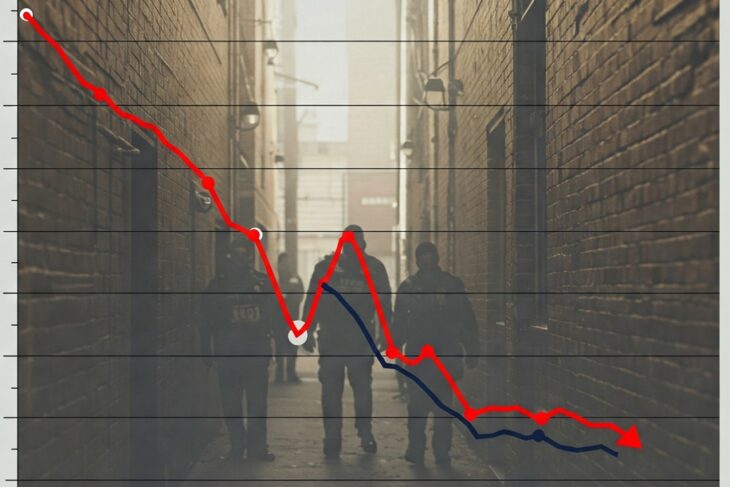
I left the Jamaican teaching profession more than two-and-a half decades ago. There was as much concern about the changing attitudes of our young people then as there is today. It was during my tenure that the ‘Values and Attitudes’ programme was implemented in our schools.
As I recall, the initiative was launched with a comprehensive curriculum and a cadre of trained facilitators. And yet I get the impression — based on concerns I have heard expressed by locals and from what I have gleaned from the news and entertainment media — that after all the years that have gone by, all is still not well since I left Jamaica. In fact, from all indications, things seem to have gotten worse.
And so, it begs the question — what of the push towards an improvement of values and attitudes among our young in society? Have we failed? If we have failed, then who, directly, is responsible? Are we fighting a losing battle? Good intentions notwithstanding, were we too late, or, perhaps, were we too anaemic in our response to the crisis?
Whatever the answers to those questions might be, can we afford not to continue to try to eradicate or, at a minimum, to mitigate this crisis? And, if we choose to continue to fight — who is the enemy and what, truly, is our theatre of war? What should our armaments look like? How will we know if we have achieved our objectives?
My boss and principal at the time of my tenure, God rest his soul, appeared to have some sense of the uphill struggle in which the nation found itself well before the values and attitudes initiative came on the scene, from observations that he had made. He was firm and yet tender towards the offensive manner of expression of our students. He was understanding and patient with respect to their skewed perspectives on life, taking every opportunity to teach.
He ran a tight ship by monitoring the entrance of dangerous implements that could be used as weapons on campus. There were moments when there were unannounced searches of book bags for such items. And, although he knew that such invasive actions were necessary, he understood that the culture which was being promulgated on campus was in a protracted, intractable, and titanic struggle with the culture which existed in their communities.
Such items were carried and concealed by students because, although they might not have needed them on campus for self-defence, they needed them after school had ended for the day. Such implements were existential necessities out on the streets. And so, to my mind, speaking to children in the safe and secure cloister of the classroom about their need to adjust their values and attitudes, without addressing the adverse, overarching, overbearing, invasive and intractable realities of where they lived, though a noble effort, was one of futility.
How broad was the scope of the war being waged in respect to combatting negative values and attitudes when I was a part of the education system, and how broad is the scope of the battle today? And while we must contend with the social forces outside of the school environment, such forces have become more complicated by other variables which have been brought to bear on their communities.
Can we, therefore, expect our students to carry the full burden of responsibility for enacting positive change without addressing the gale force at their backs which trend otherwise and which is being infused with untoward variables of a local and an international nature?
Granted, there is, no doubt, some measure of success as is evident in a few students — but can a few workshop hand towels deal with the huge pools created by gushing fire hoses? Outside of, and, without question, in tandem with what happens in the classroom, it is clear, from what my boss had so keenly observed before the advent of our values and attitudes initiative, that the external forces at hand must be addressed. If they are not, then all we are endeavouring to do, noble as it is, will be nothing more than a palliative exercise — a futile spinning of our wheels without making any headway.
We are, as a nation, recovering addicts from the inebriating and debilitating drug of European colonialism that was foisted upon us for centuries. Like the study of epidemiology in the medical world, it has been found to have left an ill sociological mark upon our individual and collective psyche that is still being studied today in academia.
Much has been published by our social scientists on this matter. And although we are no longer being goaded by “di whip ah di massah”, with our people seething with hate at our lot in life, we have been nonetheless brainwashed by the misleading lights of neocolonialism, a new derivation of the old regime, often exhibiting a distorted, a delusory and a destructive sense of self identity and self-worth, orchestrated by unseen hands.
This malady is being re-enforced by the vaunted global electronic marketplace with such things, for example, as YouTube, Netflix, Amazon Prime, HBO, Hulu, TikTok, Twitter and Facebook. And what of our local entertainment industry which, though largely positive, contains elements within it of crudity, of crassness and of violence? The lyrics of some of our songs, for example, are as flytraps which catch eager, unsuspecting, and impressionable minds, causing their poison to seep deep into their subconsciousness — turning them this way and then that with never a conscious thought as to why they are doing what they are doing? Our artistes often hold more sway over our students than our school guidance counsellors.
Other countries have also been exerting great pressure on Jamaica, politically, to rid ourselves of long held and long proven moral and cultural norms. What of them? And has academia failed us? Should they accept some responsibility for the real or the anecdotal failure of the values and attitudes initiative in our educational system?
And, what of our government — the reins which have been held by both of our major political parties? Although academics might be able to diagnose the problem and to prescribe a solution, outside of non-governmental entities and other interested groups and individuals, only government has the resources to apply it.
Did the values and attitudes tonic arise out of a sociological lab, and, if so, does the seeming failure of the drug suggest some sort of failure on the part of our social scientists? Was the initiative the creation of politicos, more as a marketing tool used for their re-election, with a view to merely give an appearance of doing something and nothing more?
It has often been asserted, by the Guinness Book of World Records, that Jamaica has the highest concentration of churches in the world per square mile, of any country, with over 1,600 “churches” all over Jamaica. And yet, despite this glaring statistical reality our nation is struggling in terms of values and attitudes — how so? If our churches are among those regarded as gatekeepers of values and attitudes, then, should they bear all, or, at least, some of the responsibility for our current dilemma?
We can blame Government. We can blame academia. We can blame the church. We can blame outside international forces — social and political. We can blame our local entertainment industry. We can even blame the private sector. But the family must bear some of the responsibility as well. I have known students who came out of decent families living in depressed communities — from homes which clung to values which were grounded in their religious beliefs and in their civic sense of responsibility — who spurned the destructive temptations which pervaded their communities to become world beaters and leaders. In fact, we read about such people every day. And so, many families must be seen as complicit in the self-destructive behaviour of their children.
To solve the problem, in addition to classroom pedagogy, therefore, our prongs of attack must be broadened. Perhaps, unknown to this writer, such a move has already begun. But if the alarm sounded by many in recent times is anything to go by, then, perhaps not.
Pedagogy in the classroom must continue. Social science research must continue. The work of parents with their children at home must continue, but Government, more than all the rest, must continue to improve the lot in life of those in our depressed communities. It cannot continue to call people in the ghetto “Shorty” when it has contributed to cutting off their legs politically, socially, and economically.
Social media must be addressed and our music industry as well. They must be controlled without violating anyone’s right of free speech. The information which flows from them is often unfiltered, siloed and biased which requires an acquired taste for critical thinking which many children, and even their parents, do not possess. The negative aspects of those social influences are as many plagues in Jamaica as they are in other countries. Let us look below the waterline and not just at the tip of the iceberg. Let us look at the roots and not just at the branches. Let us wisely assist our youth by attending to all those facets of societal need and not give them “basket fi carry water”.
I close with the following words from Dorothy Lew Nolte:
“Children learn what they live:” If a child lives with criticism, he learns to condemn. If a child lives with hostility, he learns to fight. If a child lives with ridicule, he learns to be shy. If a child lives with shame, he learns to feel guilty. If a child lives with tolerance, he learns to be patient. If a child lives with encouragement, he learns confidence. If a child lives with praise, he learns to appreciate. If a child lives with fairness, he learns justice. If a child lives with security, he learns to have faith. If a child lives with approval, he learns to like himself. If a child lives with acceptance and friendship, he learns to find love in the world.”




Well said. when I first encountered children in the schools of Jamaica in the early 1980’s they were polite and respectful of teachers. Not too long afterwards, in the early 1990’s there was a distinct change in the way teachers were perceived and treated. Bad behavior in the classroom escalated easily. Surely this was more a reflection of the world than individual homes, schools or even churches. The corruption of consumerism and capitalism dismantled a system and undermined the efforts of teachers.